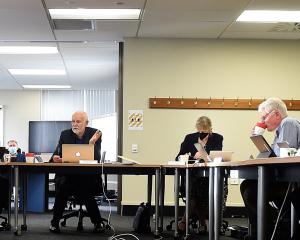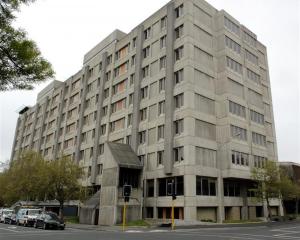Proposals for a single chief medical officer, single chief operating officer, abolishing the deputy chief executive officer position, and trimming the number of other senior managers have all been shelved.
The board will keep two distinct sets of clinical services groups, four apiece in Southland and Otago.
A proposal to scrap these to form six directorates to serve both regions would have trimmed top staff from 28 to 18.
However, there is to be a name change.
Rather than "groups" in Otago, and "divisions" in Southland, they would all be known as "directorates".
An opportunity to streamline came about when the old boards' two "provider arms" - the parts of the boards that provide services - became one under the new board, which formed on May 1.
The board received 167 submissions on the proposal.
Chief executive Brian Rousseau told the Otago Daily Times that feedback raised concerns clinical services would not be best served by the proposals.
Clinicians' lives would have been made "more difficult" by the changes.
"If we can't achieve the clinical outcomes we are after it's a no-goer."
The board had listened and changed its mind about the proposals.
The main stumbling block was the vast size of the new DHB and the stress for staff of having to work at two sites, Mr Rousseau said.
Top managers might have chosen not to apply for senior roles because they would need a presence at both sites.
Especially for parents, that presented potential difficulties, he said.
Cost savings would now be minimal.
When asked if he was disappointed, on the contrary Mr Rousseau was "delighted".
Leadership and local decision-making at hospital sites would be retained, with an emphasis on working together and providing a single service across different sites.
Providing the best clinical service, not saving money, had been the main objective.
Last month, in the proposal document, Mr Rousseau emphasised the pressing need for the board to get the deficit under control, which is forecast at $15.2 million for the 2010-11 year.
Further proposed restructuring, of executive-level secretarial services and also individual wards and units, have been shelved.
As that restructuring was a "knock-on effect" of the proposed shake-up, it was not necessary.
Mr Rousseau said that with equal-status managers in Invercargill and Dunedin, staff needed to work together to make decisions.
Any disagreement would be "escalated" up the chain and decisions imposed if staff could not agree.
The directorates in Otago and Southland are not identical in that different services come under the respective umbrellas.
Individual services would be required to adopt a regional focus, regardless of which directorate they were under.
Changes needed to be "bottom-up", rather than from the top.
This did not mean service cuts, Mr Rousseau said.
The board would be looking at smarter and better ways of doing things to save money.
The merger had resulted in savings by having one set of board members, and one set of financial accounts.
There had also been management savings outside the provider arm, such as last month's creation of a finance and funding general manager role, which eliminated the role of planning and funding general manager.











